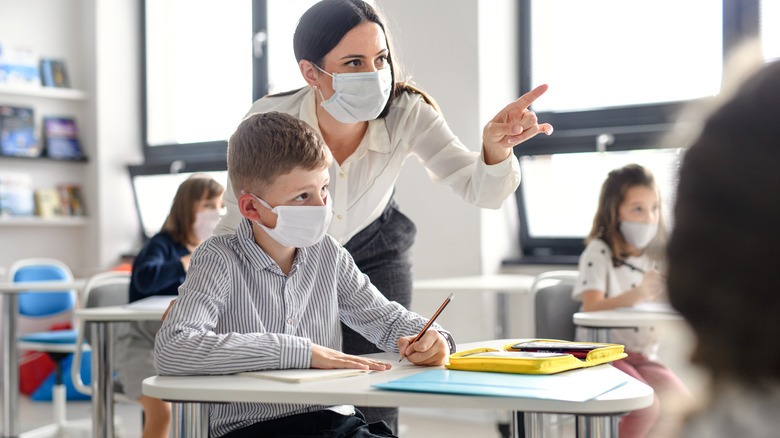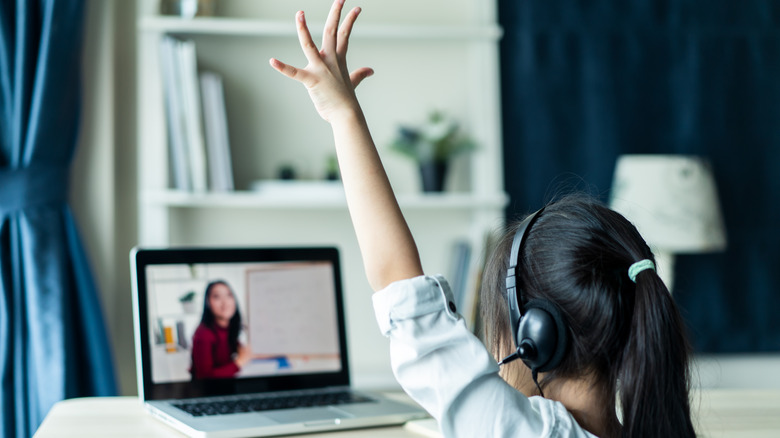CDC Director Reveals True Risk Of In-Person Learning
For parents, the pandemic has been a confusing time. It's hard to know what to believe with so many opinions out there, some of which decry the closing of schools, and others that frighten moms and dads into thinking school is a very dangerous place for children.
Luckily, the director of the Centers for Disease Control is speaking out about the true risk of in-person learning. This, as the 2020-2021 school year is almost over, to be fair. But a lot has been learned this year by health officials, and Rochelle Walensky wants the public to know that when compared with distance instruction, going back to school is the right path forward as we look toward next year (via Fox News).
Walensky's comments may shock some, as she outright noted, "There is more spread that is happening in the community when schools are not open than when schools are open." And in fact, she said widespread distance learning has led to many poor outcomes we may not have initially anticipated.
Why distance learning is not the preferred method of schooling
Walensky noted food insecurity and missing milestones are two of the many unintended consequences of at-home learning. According to Feeding America, as many as 13 million kids may experience food insecurity in 2021 as a result of the pandemic.
And as Dr. Kira Baker-Doyle, director of the University of Illinois at Chicago's Center for Literacy, told Chicago Sun Times, "If you're not feeling safe or well or socially integrated, you're going to have a real challenge in engaging in academic work and learning."
It's with kids' physical, emotional, and mental health in mind that the CDC and the Department of Education is helping guide schools toward reopening safely, per Fox News. Still, with parents feeling uncertain about sending kids back to school, Walensky said, "I want to ensure you that our operational strategy is science-based."
Because ultimately, per Scientific American, the risk of COVID-19 being transmitted in schools is low, according to the most recent data, which suggests mask wearing and sufficient social distancing can prevent the spread of the virus. Meanwhile, the chance of kids suffering more at the hands of at-home schooling seems far higher.

